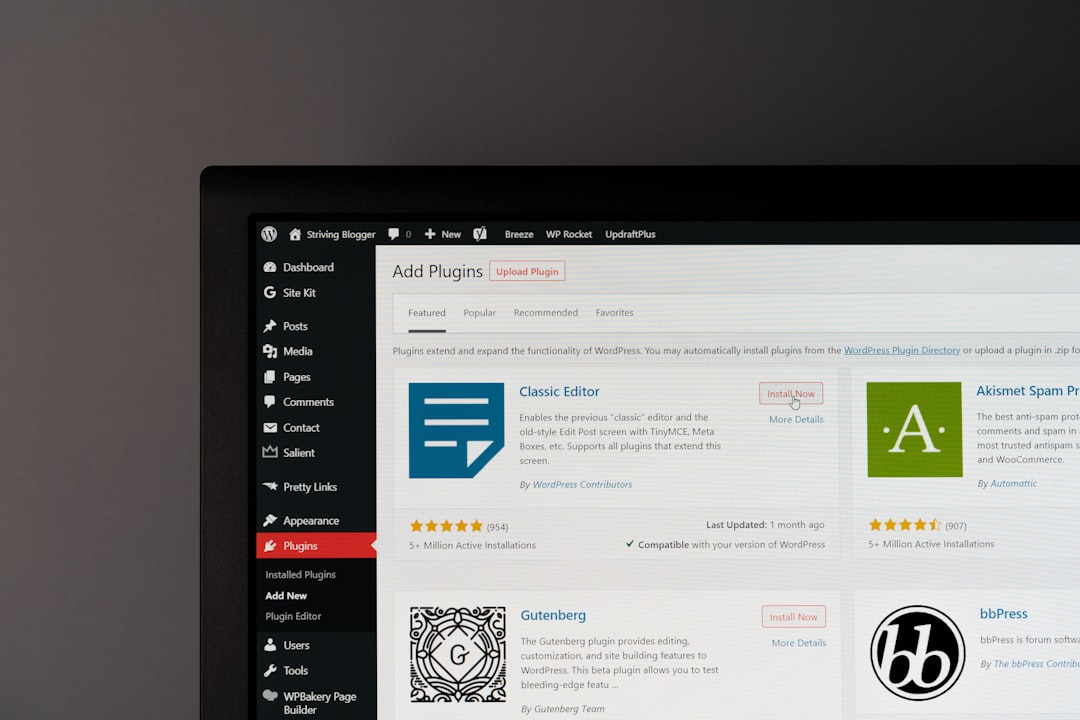In the contemporary digital landscape, businesses are increasingly adopting AI-powered chatbots to enhance their customer service capabilities. These advanced virtual assistants are transforming customer interactions, offering numerous advantages that contribute to improved customer satisfaction and loyalty. AI-powered chatbots enable businesses to provide continuous customer support, operating 24 hours a day, 7 days a week.
This round-the-clock availability ensures that customers can receive immediate assistance at any time, regardless of their location or time zone. The ability to handle multiple inquiries simultaneously allows chatbots to efficiently manage high volumes of customer requests, reducing wait times and improving overall service efficiency. These chatbots utilize natural language processing technology, enabling them to comprehend and respond to customer queries in a conversational manner.
This human-like interaction creates a more personalized and engaging experience for customers. Additionally, chatbots can swiftly analyze customer data to offer relevant product recommendations and information, further enhancing the customer experience. The implementation of AI-powered chatbots in customer service offers businesses the opportunity to optimize their operations, reduce costs, and deliver superior customer experiences.
As a result, these virtual assistants have become an increasingly valuable tool for businesses seeking to improve their customer service capabilities in the digital age.
Key Takeaways
- AI-powered chatbots can improve customer service by providing 24/7 support, reducing response times, and handling repetitive tasks.
- When choosing an AI-powered chatbot platform, consider factors such as customization options, integration capabilities, and scalability to meet your business needs.
- Integrating SMS capabilities into your AI-powered chatbot can enhance customer communication by reaching customers on their preferred channel.
- Training your AI-powered chatbot is crucial for effectively handling customer inquiries and issues, ensuring accuracy and empathy in responses.
- Data privacy and security should be prioritized when using AI-powered chatbots, with measures such as encryption and compliance with regulations like GDPR.
- Measuring the success of your AI-powered chatbot can be done through customer satisfaction surveys, retention rates, and feedback analysis.
- Future trends in AI-powered chatbots for customer service include advancements in natural language processing, personalized interactions, and omnichannel integration for seamless customer experiences.
Choosing the right AI-powered chatbot platform for your business
Natural Language Processing Capabilities
A robust chatbot platform should be able to understand and respond to natural language inputs in a conversational manner, providing a seamless and engaging experience for customers.
Advanced Machine Learning and Integration
The platform should offer advanced machine learning capabilities, allowing the chatbot to continuously improve its understanding and responses over time. Additionally, the ideal chatbot platform should seamlessly integrate with your existing customer service systems, such as CRM software and helpdesk platforms, to ensure a smooth and efficient customer service experience.
Analytics, Scalability, and Security
It’s essential to evaluate the platform’s analytics and reporting features, which can provide valuable insights into customer interactions and help identify areas for improvement. Furthermore, businesses should consider the scalability and flexibility of the chatbot platform, ensuring it can handle an increasing volume of inquiries and adapt to evolving customer needs. Finally, the platform’s security features must be assessed to ensure sensitive customer data is protected at all times.
Integrating SMS capabilities into your AI-powered chatbot for seamless customer communication

In today’s mobile-centric world, integrating SMS capabilities into your AI-powered chatbot can significantly enhance customer communication and engagement. SMS offers a direct and convenient channel for customers to interact with businesses, providing quick access to information and support. By integrating SMS capabilities into your chatbot, you can meet customers where they are and offer a seamless communication experience across multiple channels.
One of the key benefits of integrating SMS capabilities into your chatbot is the ability to reach customers who may not have access to the internet or prefer not to use messaging apps. SMS provides a universal communication channel that ensures all customers can easily engage with your business. Additionally, SMS offers high open and response rates, making it an effective channel for delivering important updates, promotions, or personalized messages to customers.
Furthermore, integrating SMS capabilities into your chatbot allows for automated two-way communication, enabling customers to initiate conversations and receive instant responses via text message. This real-time interaction can significantly improve customer satisfaction and retention by providing quick and convenient support. Moreover, SMS can be used to send proactive notifications or reminders to customers, such as order updates or appointment reminders, further enhancing the overall customer experience.
By integrating SMS capabilities into your AI-powered chatbot, businesses can create a seamless and efficient communication channel that meets the diverse needs of their customers.
Training your AI-powered chatbot to effectively handle customer inquiries and issues
Training an AI-powered chatbot to effectively handle customer inquiries and issues is a critical step in ensuring a successful customer service experience. To begin with, businesses must provide the chatbot with a comprehensive knowledge base that includes information about products, services, policies, and frequently asked questions. This knowledge base serves as the foundation for the chatbot’s understanding and enables it to provide accurate and relevant responses to customer inquiries.
Moreover, businesses should focus on training the chatbot to understand natural language inputs and respond in a conversational manner. This involves leveraging natural language processing capabilities to enable the chatbot to comprehend the nuances of human language and provide contextually appropriate responses. Additionally, businesses should continuously monitor and analyze customer interactions to identify common issues or pain points that the chatbot may struggle to address.
This data-driven approach allows businesses to refine the chatbot’s training and improve its ability to handle a wide range of customer inquiries effectively. Furthermore, businesses should prioritize ongoing training and refinement of the chatbot’s responses based on real-time feedback from customers. This iterative approach enables the chatbot to continuously learn and improve its performance over time.
Additionally, businesses can leverage machine learning algorithms to enable the chatbot to adapt to new scenarios and customer inquiries autonomously. By investing in comprehensive training for their AI-powered chatbot, businesses can ensure that it delivers accurate, relevant, and helpful responses to customer inquiries, ultimately enhancing the overall customer service experience.
Ensuring data privacy and security when using AI-powered chatbots for customer service
As businesses increasingly rely on AI-powered chatbots for customer service, ensuring data privacy and security is paramount to maintaining customer trust and compliance with regulations. To begin with, businesses must prioritize implementing robust data encryption protocols to protect sensitive customer information transmitted through the chatbot. This includes securing data both at rest and in transit to prevent unauthorized access or interception by malicious actors.
Moreover, businesses should carefully consider the storage and retention of customer data within the chatbot system. It’s essential to establish clear policies for data retention and regularly review and purge unnecessary data to minimize the risk of unauthorized access or misuse. Additionally, businesses should implement stringent access controls and authentication mechanisms to ensure that only authorized personnel can access sensitive customer data within the chatbot system.
Furthermore, businesses must comply with relevant data privacy regulations such as GDPR or CCPA when using AI-powered chatbots for customer service. This includes obtaining explicit consent from customers before collecting their personal data and providing transparent information about how their data will be used. Additionally, businesses should provide customers with options to control their data preferences and opt-out of data collection if desired.
By prioritizing data privacy and security when using AI-powered chatbots for customer service, businesses can build trust with their customers and demonstrate a commitment to protecting their sensitive information.
Measuring the success of your AI-powered chatbot implementation through customer satisfaction and retention

Customer Satisfaction Scores
One key metric for evaluating the effectiveness of a chatbot is customer satisfaction scores obtained through post-interaction surveys or feedback mechanisms. By collecting feedback directly from customers about their experience with the chatbot, businesses can gain valuable insights into areas for improvement and identify any recurring issues that may impact satisfaction.
Key Performance Indicators
Moreover, businesses should track key performance indicators such as first contact resolution rates and average resolution times when evaluating the success of their AI-powered chatbot implementation. These metrics provide insights into the chatbot’s ability to effectively address customer inquiries and issues in a timely manner. Additionally, businesses can analyze trends in customer engagement and interaction patterns with the chatbot to identify areas for optimization or enhancement.
Customer Retention and Sentiment Analysis
Furthermore, measuring customer retention rates before and after implementing an AI-powered chatbot can provide valuable insights into its impact on long-term customer loyalty. By comparing retention rates over time, businesses can assess whether the chatbot has contributed to improved customer loyalty through enhanced support experiences. Additionally, businesses should leverage sentiment analysis tools to monitor customer sentiment towards the chatbot interactions. By analyzing sentiment trends over time, businesses can gain insights into how customers perceive their interactions with the chatbot and identify opportunities for improvement.
Future trends and advancements in AI-powered chatbots for customer service
Looking ahead, there are several exciting future trends and advancements in AI-powered chatbots that are poised to transform the landscape of customer service. One such trend is the integration of advanced natural language processing capabilities that enable chatbots to understand complex queries and context more accurately. This will allow chatbots to engage in more sophisticated conversations with customers and provide more nuanced responses based on contextual understanding.
Moreover, advancements in machine learning algorithms will enable chatbots to continuously learn from new interactions and adapt their responses in real-time. This autonomous learning capability will empower chatbots to become more adept at handling a wide range of inquiries without requiring manual intervention or retraining. Furthermore, we can expect to see increased integration of AI-powered chatbots with other emerging technologies such as augmented reality (AR) and virtual reality (VR).
This integration will enable chatbots to provide more immersive and interactive support experiences for customers by leveraging AR/VR technologies for visual demonstrations or troubleshooting guidance. Additionally, advancements in emotional intelligence algorithms will enable chatbots to recognize and respond to customer emotions more effectively. This will allow chatbots to provide empathetic support tailored to the emotional state of the customer, ultimately enhancing the overall support experience.
Finally, we can anticipate greater personalization capabilities in AI-powered chatbots through advanced data analytics and machine learning algorithms. Chatbots will be able to leverage extensive customer data to deliver highly personalized recommendations, support, and product offerings tailored to individual preferences and behaviors. In conclusion, AI-powered chatbots hold immense potential for transforming the landscape of customer service by offering 24/7 support, personalized interactions, and efficient handling of inquiries.
By carefully selecting the right platform, integrating SMS capabilities, training effectively handling inquiries while ensuring data privacy/security measuring success through satisfaction/retention metrics & keeping an eye on future trends – businesses can harness the full potential of AI-powered chatbots for exceptional customer service experiences.
If you’re interested in maximizing customer engagement with SMS-iT, you may also want to check out this article on how to streamline your customer relationship management with SMS-iT integration. This article provides valuable insights into how businesses can effectively manage their customer relationships using SMS-iT tools. It’s a great resource for anyone looking to revolutionize their customer service approach. (source)
FAQs
What is an AI-powered chatbot for customer service?
An AI-powered chatbot for customer service is a software application that uses artificial intelligence and natural language processing to interact with customers, answer their questions, and provide assistance through a chat interface.
How does SMS-iT integrate with AI-powered chatbots for customer service?
SMS-iT is a platform that allows businesses to integrate AI-powered chatbots with their customer service operations through SMS messaging. This allows customers to interact with the chatbot using their mobile phones, making it a convenient and accessible customer service solution.
What are the benefits of implementing AI-powered chatbots for customer service with SMS-iT?
Implementing AI-powered chatbots for customer service with SMS-iT can provide several benefits, including improved customer satisfaction, reduced response times, 24/7 availability, cost savings, and the ability to handle a high volume of customer inquiries efficiently.
How does AI-powered chatbots for customer service with SMS-iT improve customer experience?
AI-powered chatbots for customer service with SMS-iT can improve customer experience by providing quick and accurate responses to customer inquiries, offering personalized assistance, and enabling customers to engage with the business through a familiar and convenient communication channel.
What industries can benefit from implementing AI-powered chatbots for customer service with SMS-iT?
Various industries, including retail, e-commerce, banking, telecommunications, healthcare, and hospitality, can benefit from implementing AI-powered chatbots for customer service with SMS-iT. These industries can use chatbots to streamline customer interactions, provide support, and enhance the overall customer experience.







